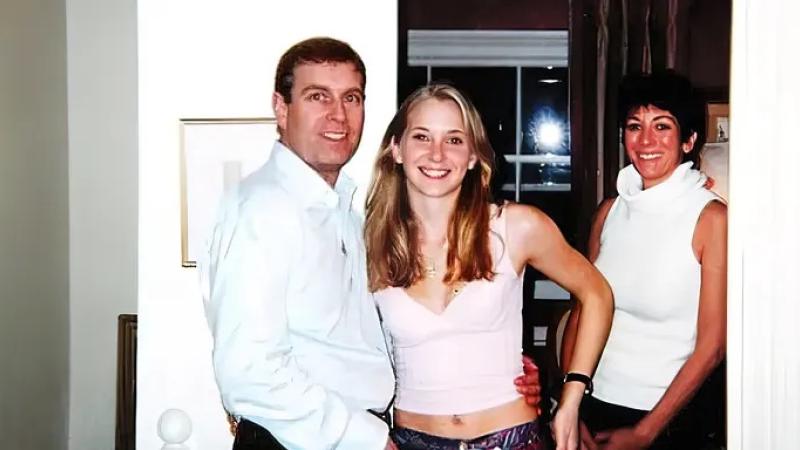Mixed message? Bush foundation chief who organized unity letter previously leaked Steele dossier
The letter champions American unity in supporting democracy while the Steele dossier was used to undermine the 2016 presidential election.
The executive director of the George W. Bush Institute, who organized a letter from presidential libraries calling for national unity, previously leaked the now-debunked Steele dossier to reporters during height of the Trump-Russia collusion investigation.
David Kramer, who worked in the State Department under President George W. Bush and was an associate of the late Sen. John McCain (R-Ariz.), pushed for the foundations and centers of former presidents to sign a letter about unifying the country.
However, in 2016 Kramer provided the Steele dossier to BuzzFeed, which published it without corroborating its allegations that then-President-elect Donald Trump was a puppet of Russian President Vladimir Putin.
On Thursday, a letter was released by the George W. Bush Institute about unifying around democracy, saying that: "Debate and disagreement are central features in a healthy democracy. Civility and respect in political discourse, whether in an election year or otherwise, are essential."
The letter was co-signed by 13 presidential centers, reflecting a wide diversity of viewpoints and policies, ranging from the Obama Foundation and The Carter Center to the George & Barbara Bush Foundation and The Ronald Reagan Presidential Foundation and Institute.
The Eisenhower Foundation explained that it had declined an invitation to sign the letter as there hadn't been a pre-publication discussion about the letter, which was the first joint statement issued by the foundations.
The statement signed by the foundations declared the U.S. is a diverse nation where “democracy holds us together" and that "Americans have a strong interest in supporting democratic movements” but that the “interest is undermined” around the world “when others see our own house in disarray.”
The statement also says that everyone in the U.S. has a role and responsibilities to address the country’s problems, and that “Our elected officials must lead by example and govern effectively in ways that deliver for the American people,” which “will help to restore trust in public service."
Kramer spearheaded the effort for the letter, saying that Bush “did see and signed off on this statement,” according to The Guardian. Kramer told The Washington Post that the letter wasn’t intended to single out any campaign or person but that its purpose is to focus on the U.S.’s progress and the work still left to be done.
Kramer also noted that former President Trump does not have a presidential foundation yet and therefore wasn’t represented in the letter.
The release of the letter comes amid Trump facing four indictments, two of which are related to his claims that the 2020 presidential election was stolen. Most polls indicate that he is the frontrunner for the 2024 GOP presidential nomination.
In 2019 it was disclosed that Kramer admitted in a deposition that he leaked the Steele dossier to several news organizations.
The result of that release -- repeated uncritically by mainstream media and Hillary Clinton surrogates -- was anything but unifying.
BuzzFeed published it in January 2017 without corroborating its allegations.
The dossier was central to the Trump-Russia collusion investigation by the FBI, called "Crossfire Hurricane," which resulted in the probe by Special Counsel Robert Mueller.
The dossier portrayed Trump as a pawn of Putin, along with salacious allegations of a sexual nature involving then-candidate Trump, in what many suspected was an effort by the Hillary Clinton campaign to impact the outcome of the 2016 presidential election.
"I stressed to every person I met the sensitivity of the document, the need to verify or refute it, and not to publish it," Kramer said. "Unless or until that would be done. And if it was refuted, it was obviously no reason to publish it."
Kramer's caveat to reporters was almost universally ignored. In an op-ed in The Columbia Journalism Review titled "The media’s belated rush to judgment on the Trump dossier," it was noted that after the dossier's authenticity fell apart, The Washington Post corrected and removed chunks of its coverage of the Steele dossier.
NBC News' Chuck Todd -- no ally of Trump's -- told BuzzFeed's then-editor and former New York Times media columnist Ben Smith: “You just published fake news.”
The George W. Bush Institute didn’t immediately respond to a request for comment from Kramer regarding his role in both the letter and the Steele dossier.
The 2018 Pulitzer Prize for National Reporting was awarded to both The Washington Post and The New York Times for reporting on Russiagate. Critics assailed the award, especially since the Steele dossier turned out to be discredited.
One Russia expert and research fellow at both the Hoover Institution, and at Stanford University, Paul Roderick Gregory, writing for Forbes called the dossier "fake," saying that the story it told "makes no sense."
"We have reached a sad state of affairs where an anonymous report, full of bizarre statements, captures the attention of the world media because it casts a shadow over the legitimacy of a President-elect, who has not even taken the oath of office," Gregory wrote.
















